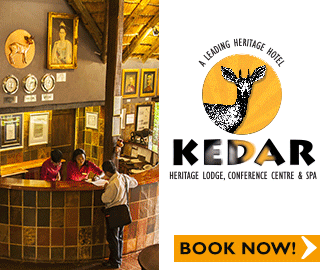
Mozambique: Rich in Natural Resources
BY BRUCE GERMAINE 9 AUG, 2016 12:19
Mozambique – a country once ruled by the Portuguese counts itself among the top 5 fastest growing economies in Africa with a 7 % average growth rate over the last 5 years. Over the past two decades Mozambique has experienced significant economic growth at a pace matching that of other rapidly growing economic powerhouses such as India and China, a somewhat strange phenomenon among its neighbours.
Looking at some of the figures according to the Instituto Nacional De Estatistica, the Gross Domestic Product growth rate averaged 1.46 from 2007 until 2016 with a record 7.70% towards end of 2007 with an all-time low of minus 2.10 % in the last quarter of 2015.
While Mozambique's central bank left its standing facility rate steady at 9.75 percent cognisant of "challenging macroeconomic objectives for 2016," this albeit within the economic growth rate of 7 percent coupled with sufficient adequate international reserves.
The 2016 goals are set in a context of anticipating drought and floods in some parts of the country as well as the weakened global economic activity, specifically in emerging market economies.
However, according to the IMF, the outlook remains positive and robust with a medium term growth recovery rate forecast of 7.5 – 8 %, with foreign investments in the natural gas and coal sectors boosting this confidence significantly.
Mozambique still has a long way to go in terms of fully exploiting its natural resources previously being one of the world's poorest and least developed countries. Foreign aid was a necessity with years of civil wars and government mismanagement it left the nation heavily dependent on foreign aid.
With an economy that is dominated by agriculture, prawns, cotton, cashew nuts, sugar, citrus, copra, coconuts, and timber constituting important crops, Mozambique also has vast mineral deposits (marble, bentonite, coal, gold, bauxite, granite and gemstones) with aluminum being the most important exports product.
As with other African economies, lower commodity prices and a decline in foreign exchange inflows have generated a temporary balance of payments gap with authorities taking strong policy measures to preserve macroeconomic stability. This continued implementation of conservative policies under the standby credit facility will be necessary to ensure that Mozambique can manage its debt while protecting against external market forces and maintain promoting strong and inclusive growth.
Says the IMF in one of its press releases: “The authorities’ front-loaded corrective measures, including a tightening of the 2016 budget deficit and of the monetary policy stance in 2015, as well as a reform of the foreign exchange market should help to stabilize the economy. Rigorous implementation of the budget, enhanced VAT management, close monitoring of fiscal risks, and allowing for continued exchange rate flexibility will be key to restoring macroeconomic stability. The central bank should stand ready to further tighten liquidity conditions as needed. Work on an action plan to improve the profitability of the EMATUM fishing company should be fast tracked to reduce its risk to the government budget.”
It further states: “Significant progress has been made on structural reforms. To make Mozambique’s strong growth performance more inclusive and broad based, the reform agenda needs to focus on enhancing public financial management, including budget controls and fiscal transparency, and developing the institutional framework and building capacity to prepare for the management of natural resource wealth. Priority should also be given to reforming the energy sector, improving access to financial services, and strengthening the business environment. A vigorous debt management strategy will be crucial to address the challenges of significant infrastructure gaps at a time when debt vulnerabilities have been rising.”
Despite all the positive growth outlooks, Mozambique’s President Filipe Nyusi will have to navigate some strong economic gale winds in the form of the scandal that has raised eyebrows among international donors such the IMF, The World bank, the African Development Bank, the United Kingdom and the European Union.
In a recent revelation, it seems that in 2013/2014 the previous Mozambican government took out loans worth more than $ 2 billion to fund projects by state owned entities. Seemingly more debt was incurred than ever before and although the state is the leading shareholder of the companies who are part of the deals, the Mozambican government nevertheless is still liable as guarantor to service those debts.

Mozambique also has vast mineral
deposits (marble, bentonite, coal, gold, bauxite, granite and gemstones) with aluminum being the most important exports product."
"

Current President Nyusi denies that his team knew about this since he came to office well after the controversial deals were entered into. The result: the IMF along with World Bank and UK government are postponing on signing any further loans and 2nd stage financial installments until more clarity has been reached. Ironically President Nyusi denies that his latest anti-corruption drive has been diluted by the very scandal that the current anti-corruption campaign purports to prevent.
International creditors are now demanding more transparency but the government is positive that it will rise above the scandal with President looking towards China for help after an unsuccessful trip to Brussels and Washington.
President Nyusi plus his delegation of high ranking officials recently visited China with the aim of cementing relations between the two countries in what is the second bilateral meeting. Prospects of securing a portion of the $60 billion that China has earmarked for African countries are on the agenda.
But some critics remain skeptical maintaining that Chinese companies benefit more from the construction projects financed by China in terms of not contributing towards the growth of the Mozambican economy since all the work is being done by imported Chinese labour and materials. From streets, power lines and railway tracks and even imported nails that are used to build by Chinese firms, it is said that few if any Mozambicans are being employed, and credits flow straight back to China, leaving a huge vacuum for local business people and entrepreneurs.
This type of conditional aid is by no means unusual and is also done by other countries but seemingly the Mozambique/China agreements leave little room in terms of local businesses benefitting.
Other observers believe that President and his government have little alternative but to turn to China for more assistance , this especially in view of the recent financial scandals committed under the previous government.
How the situation develops politically will have a direct influence on the growth rate. There is discontent among civil society organizations as well as opposition parties and people are weary of the impending rising cost of living, the depreciation of the national currency, local armed skirmishes and conflicts, and the public debt, all this certainly coupled with recent financial scandals does not bode well unless President Nyusi pulls a rabbit out of his hat in the form of securing additional aid from China.
Traditional sunday's art market in Maputo. This local market is one of the tourist attractions in the city. Photo: Supplied














